Vitamins
All information about "Vitamins" and the related magazine articles can be found here.
Our articles are written clearly and link to scientific studies where relevant. This is how we meet our own standards: we regularly deliver new, high-quality content for you—free of charge, no sign-up required, with the highest possible benefit to you.

Myo-inositol - how does it affect us?
Hormonal imbalance can have a major impact on many processes. What exactly does it mean when our own production decreases and how can I support my health in this regard?

Calcium or calcium - the important thing is to take it!
Find out what this important mineral is involved in in the body and which is the better form of calcium here!
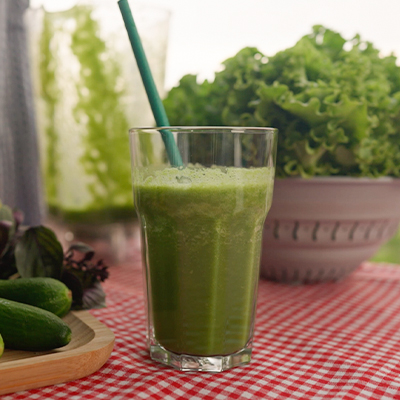
How a detox works
The human body works around the clock to eliminate harmful substances and toxins. But when there are too many toxins in the system, it needs help.

Alkaline diet
The pH of our organs plays an important role in our health. But how does our diet affect our body's acid-base balance?

How can I tell if I have a vitamin deficiency?
Tired, exhausted, aching limbs? A vitamin deficiency can take many forms, but is usually easy to treat. Find out what to look out for.
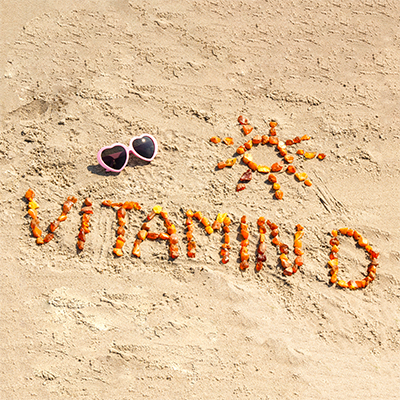
Often in short supply in winter - Vitamin D
Vitamin D is a real all-rounder when it comes to health: it ensures healthy bones and is involved in many processes in the human body.
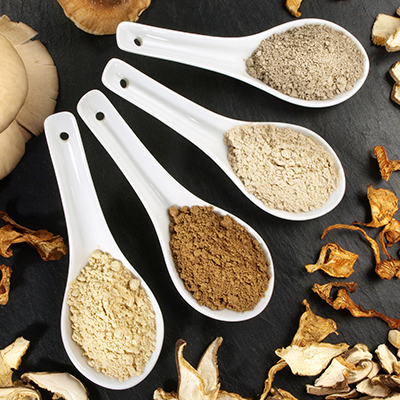
Still unknown to many - medicinal mushrooms
Many people in Europe are still unfamiliar with the use of so-called medicinal mushrooms, but these mushrooms are an integral part of many traditional diets. Find out what they are called and what powers they have.

When the immune system needs a boost
Our immune system is usually good at fending off invaders. But how can we strengthen it so that it continues to work well under high levels of stress?

Get through the autumn and winter safely!
Colds are hard on the mind and body. Read here to find out how you can protect yourself against colds and give your body extra support.

Zinc, an essential trace element
Zinc is involved in many processes in the human body. Read here to find out why it is so important for us and what vegetarians/vegans should look out for.

Vitamins for hair loss
Biotin, vitamin D, zinc and selenium: When certain nutrients are lacking, hair suffers. Hair health can be supported by the right diet

Alternative treatments for bladder infections
Urinary tract infections are common. In most cases, the infection can be cured easily, and some home remedies can help the healing process.

The effects of the yam root
Yam is a staple food around the world. The yam is a staple food in many parts of the world, similar to the potato.

How curcumin works
Turmeric owes its bright yellow colour to the plant compound curcumin. But curcumin is much more than that.

Women in competitive sport
The effect of oestrogen and progesterone on training success has long been underestimated. The definable phases of muscle building, increased risk of injury and muscle recovery can now be used to create a successful training plan.

How galactose works
This simple sugar works differently to glucose and therefore has special properties that make it particularly interesting for diabetics. Find out more now

To do this, the body needs the amino acid L-tyrosine.
L-tyrosine is involved in many processes in the body, including the production of the hormones dopamine and adrenaline.

How to keep your gut flora healthy
What makes a healthy gut? And how can gut bacteria and the right diet help you stay healthy? Here are the answers to the most important questions about a healthy gut.

Vitamins for beautiful skin
Vitamins play an important role in our health - and our appearance. With the right nutrients, you can make your skin glow.
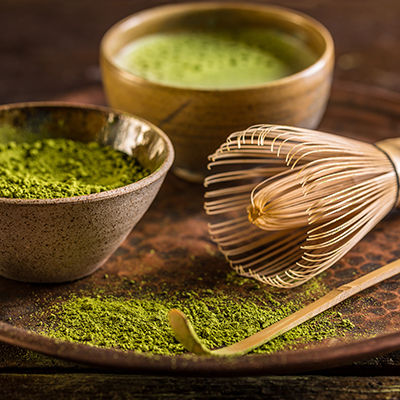
Green tea is so healthy
Green tea is considered healthy and is also said to help with weight loss. So it's not surprising that there are now many dietary supplements containing green tea extract. What is behind these supposed effects?

What is Astragalus extract?
Astragalus root extract has been used in traditional Chinese medicine for thousands of years.

What makes collagen special
Collagen is best known for its role in the connective tissue of the skin. Skincare products or supplements containing collagen are often advertised as having an "anti-ageing" effect. But the protein can do more.

What is L-Arginine?
L-Arginine is a term that is often used in connection with weight training supplements. Read on to find out what it is and how it can benefit athletes in particular.
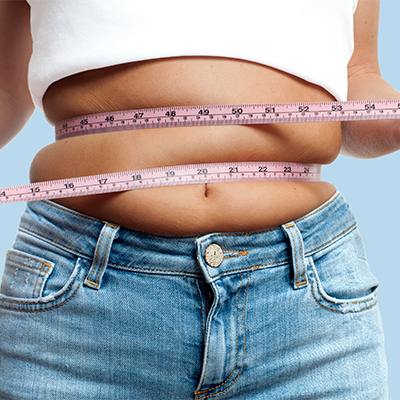
Can vitamin B12 help you lose weight?
Vitamin B12 is involved in many metabolic processes in the human body. Many people find that weight gain and B12 deficiency often occur together. Why is this the case?
Vitamins - essential for our health
Vitamins play a crucial role in our health and well-being. They are essential nutrients that our body needs to function optimally. But what different vitamins are there? Which foods contain them? And what functions do the individual vitamins have? We take a closer look at these and other questions in this article.
The 13 known vitamins
There are a total of 13 known vitamins that are essential for the human body. These can be divided into two main groups: fat-soluble and water-soluble vitamins.
Fat-soluble vitamins
The fat-soluble vitamins include:
- Vitamin A
- Vitamin D
- Vitamin E
- Vitamin K
These vitamins can be stored in the body's fatty tissue and therefore do not need to be taken daily.
Water-soluble vitamins
The water-soluble vitamins include:
- Vitamin C
- B vitamins: B1, B2, B3, B5, B6, B7 (biotin), B9 (folic acid), B12
In contrast to fat-soluble vitamins, these cannot be stored in the body and must be taken in regularly through food.
What is the importance of the individual vitamins for humans?
Each vitamin has specific functions in the body. We will now take a closer look at what these are.
Vitamin A
Vitamin A, also known as retinol, is important for the production of testosterone and sperm cells, making it a significant factor in reproduction. It also promotes healthy bones, teeth and cartilage and is essential for the development and regeneration of the skin. The daily requirement for vitamin A varies according to age and gender, but is generally between 0.8 and 1.1 milligrams in the form of beta-carotene (which is converted to vitamin A in the body).
Vitamin D
Vitamin D is often referred to as the sunshine vitamin, as it is the only vitamin that can be produced by the body itself with the help of sunlight. It is crucial for a positive mood, a strong immune system and healthy bones and muscles. It also contributes to a healthy cardiovascular system. The daily requirement for vitamin D is around 20 micrograms [1].
Vitamin E
Vitamin E acts as a powerful antioxidant with anti-inflammatory properties. It is important for memory, healthy blood vessels and the immune system. Adults should consume between 11 and 15 milligrams of vitamin E daily. [2]
Vitamin K
Vitamin K is primarily known for its importance in blood clotting, where it is involved in the activation of several clotting factors. Vitamin K also has an important influence on bone metabolism. It activates the protein osteocalcin, which is essential for new bone formation and bone remodeling. The daily requirement for vitamin K varies according to age and gender, with good sources being green vegetables for vitamin K1 and animal products for vitamin K2. An adequate supply of vitamin K is particularly important for bone health, especially in older people, to reduce the risk of osteoporosis and bone fractures.
Vitamin C
Vitamin C is known as the all-rounder for the immune system. It not only strengthens the body's own defenses, but also supports the formation of bones and cartilage. Vitamin C also improves the absorption of iron from plant foods and acts as an antioxidant by scavenging free radicals and thus protecting the cells. It also plays a supporting role in wound healing. The average daily requirement of vitamin C is around 100 milligrams, which can easily be met by eating a large orange or 75 grams of currants [3].
B-vitamins
B vitamins are essential for the production of energy from carbohydrates and proteins and support many bodily functions:
- Vitamin B1 (thiamine) is crucial for energy production and supports the nervous system and muscles.
- Vitamin B2 (riboflavin) is known as an energy vitamin and supports the production of energy from fat, protein and carbohydrates as well as the burning of fat.
- Vitamin B3 (niacin) promotes energy production, has a positive effect on thinking and memory and can help to reduce tiredness.
- Vitamin B5 (pantothenic acid) is an important component of the coenzyme CoA and is required for the breakdown of carbohydrates, fats and amino acids.
- Vitamin B6 (pyridoxine) contributes to normal energy, protein and glycogen metabolism and supports normal nerve function.
- Vitamin B7 (biotin) is involved as a coenzyme in the conversion of nutrients into energy and ensures a functioning protein and fat metabolism.
- Vitamin B9 (folic acid) is important for athletes as it contributes to the normal functioning of the metabolism of various nutrients.
- Vitamin B12 plays an important role in the formation of red blood cells, the function of nerve cells and cell division and also has an influence on our psyche.
What is the daily vitamin requirement?
There is no general answer to the question of which vitamins you should take every day. Individual requirements depend on various factors such as age, gender, lifestyle and state of health.
A healthy, varied diet with plenty of fresh fruit, vegetables, wholegrain products, lean meat and fish generally provides all the vitamins you need. Experts recommend:
- Three portions of vegetables and two portions of fruit daily
- Regular consumption of wholemeal and dairy products
- Spend time outdoors to stimulate the body's own vitamin D production
Special situations and risk groups
In special situations and for risk groups, additional vitamin supplementation may be necessary:
- With a vegetarian or vegan diet, for example, it is important to pay particular attention to the supply of vitamin B12, as this is mainly found in animal products.
- Pregnant and breastfeeding women have an increased need for folic acid to prevent developmental disorders in the fetus.
- Additional intake may also be necessary in the case of certain illnesses that impair vitamin absorption.
- Targeted vitamin supplementation can also be important for competitive athletes. Intensive physical exertion and an increased metabolism increase the need for certain vitamins, especially the water-soluble B vitamins and vitamin C. These vitamins are increasingly lost through sweat and urine. These vitamins are increasingly lost through sweat and urine. Supplementation may also be advisable for athletes who have a high carbohydrate diet with a low micronutrient density or who exclude certain food groups.
In allen Fällen ist eine ärztliche Beratung ratsam, wenn Sie Nahrungsergänzungsmittel wie einem Vitamin-B-Komplex, Multivitamin oder anderen Vitamine von A-Z einnehmen möchten, weil ein Arzt Ihren individuellen Bedarf ermitteln kann. Das gilt insbesondere dann, wenn die Einnahme hochdosiert erfolgen soll.
The role of vitamins for the metabolism
Vitamins play a crucial role in metabolism and are essential for many vital functions of the body. They are not only involved in numerous metabolic reactions and regulate the utilization of carbohydrates, proteins and minerals, but also act as cofactors for enzymes that are responsible for the build-up and breakdown of substances in the body.
B vitamins are particularly important for energy metabolism: vitamin B2 (riboflavin) triggers energy production from carbohydrates and fat. Vitamin B6, on the other hand, is involved in muscle building and the conversion of amino acids.
Vitamin C supports fat burning by promoting the production of noradrenaline and carnitine. Vitamins also influence the hormone balance, such as the production of thyroid hormones, which regulate the metabolism [4]. Last but not least, they support the immune system and are important for the formation of cells, blood cells, bones and teeth as well as for the function of enzymes that ensure a smooth metabolism in the cells.
Vitamin-rich foods: natural sources for your health
To provide your body with an optimal supply of vitamins, you should eat a varied and balanced diet. The following foods are particularly helpful here:
- Vitamin A: carrots, sweet potatoes, spinach, mangoes
- Vitamin D: Fatty fish (e.g. salmon, mackerel), egg yolk, mushrooms
- Vitamin E: Nuts and seeds, vegetable oils (especially wheat germ oil), avocados
- Vitamin K: kale, spinach, broccoli, Brussels sprouts, parsley, rocket, chives, chickpeas, lentils, rapeseed oil
- Vitamin C: citrus fruits, peppers, broccoli, acerola cherries
- B vitamins: Whole grain products, legumes, meat and fish, eggs, dairy products
Vitamins and the immune system: a strong team
Vitamins help to strengthen and maintain our body's own defenses. Vitamin C is particularly important here. It not only supports the function of white blood cells, our immune cells, but also acts as a potent antioxidant that protects our cells from harmful free radicals [5].
Vitamin D has proven to be an important modulator of the immune response. Studies show that an adequate supply of vitamin D can reduce the risk of infections. This underlines the importance of adequate vitamin D intake, especially in regions or seasons with little sunshine.
Vitamin E also makes an important contribution to immune defense. As a powerful antioxidant, it protects our cells from oxidative stress and thus supports the body's general resistance to pathogens.
Vitamin A is also important for our mucous membranes.
Vitamins in combination
Vitamins should not be considered in isolation, as they often only develop their full effect in combination with other nutrients. One of the best known and most important interactions is between vitamin D and calcium. Vitamin D plays a crucial role in the absorption of calcium in the intestine and is therefore essential for keeping our bones healthy. Without sufficient vitamin D, the body would not be able to optimally utilize the calcium it absorbs, which could lead to reduced bone density in the long term.
Vitamin C and iron also work well together. Vitamin C significantly improves the absorption of iron, especially from plant sources. This is particularly important for vegetarians and vegans, but also for anyone else who wants to optimize their iron intake.
Vitamin E and omega-3 fatty acids also work best together. Omega-3 fatty acids are known for their numerous health benefits, but are also very sensitive to oxidation. This is where vitamin E comes into play: as a powerful antioxidant, it protects the valuable omega-3 fatty acids from oxidative damage and thus maintains their effectiveness. This combination is particularly relevant for heart health and the function of the nervous system [6].
Trace elements such as zinc and selenium also work closely with vitamins to fulfill various important functions in the body.
Special vitamin requirements at different stages of life
Vitamin requirements can change depending on the phase and situation of life:
Pregnancy and breastfeeding
The need for many vitamins is increased during pregnancy and breastfeeding. These are particularly important:
- Folic acid: to prevent neural tube defects in the unborn child
- Vitamin D: for the development of the baby's bones
- Vitamin B12: for the development of the nervous system
Childhood and youth
- Vitamin D: for healthy bones
- Vitamin A: for growth and development
- B vitamins: for energy and the nervous system
Seniors
In old age, the need for certain vitamins can increase, while absorption is often more difficult:
- Vitamin D: for the prevention of osteoporosis
- Vitamin B12: as absorption is often impaired in old age
- Antioxidants (vitamin C, E): to protect against age-related diseases
How can I recognize a vitamin deficiency?
Vitamin deficiency can manifest itself through various symptoms and should be taken seriously. Common signs include persistent tiredness, increased susceptibility to infections, problems with skin and hair and difficulty concentrating. However, these symptoms can also have other causes, which is why a visit to the doctor is advisable if a vitamin deficiency is suspected. The vitamin status can be determined precisely by means of specific blood tests. A balanced and varied diet is the key to preventing a vitamin deficiency.
Vitamins and disease prevention
Vitamins play an important role in the prevention of various diseases:
- Cardiovascular diseases: Vitamins C and E as antioxidants can reduce the risk
- Osteoporosis: Vitamin D and K are important for bone health
- Cancer: Antioxidants such as vitamin C, E and beta-carotene may be able to reduce the risk of certain types of cancer. However, experts are skeptical about this [7].
- Eye diseases: Vitamin A is essential for eyesight.
Vitamins are little helpers with a big effect
Vitamins are essential nutrients that play a central role in our health and well-being. They support numerous bodily functions, strengthen our immune system and our nerves and help us to remain efficient and vital.
Food supplements (in capsule, tablet or powder form) can be useful in certain situations. But remember: they are never a substitute for a healthy lifestyle and diet.
Sources
[1] https://www.rki.de/SharedDocs/FAQ/Vitamin_D/Vitamin_D_FAQ-Liste.html
[2] https://www.aok.de/pk/magazin/ernaehrung/vitamine/vitamine-wichtig-fuer-das-immunsystem-und-die-abwehrkraefte/
[3] https://www.aok.de/pk/magazin/ernaehrung/vitamine/vitamin-c-wie-viel-brauchen-wir/
[4] https://www.schilddruesenpraxis.at/spurenelemente-schilddruese.html
[5] https://pubmed.ncbi.nlm.nih.gov/29099763/
[6] https://pubmed.ncbi.nlm.nih.gov/33445534/
[7] https://www.krebsgesellschaft.de/onko-internetportal/basis-informationen-krebs/bewusst-leben/basis-informationen-krebs-bewusst-leben-ernaehrung/mit-vitaminen-kre.html
